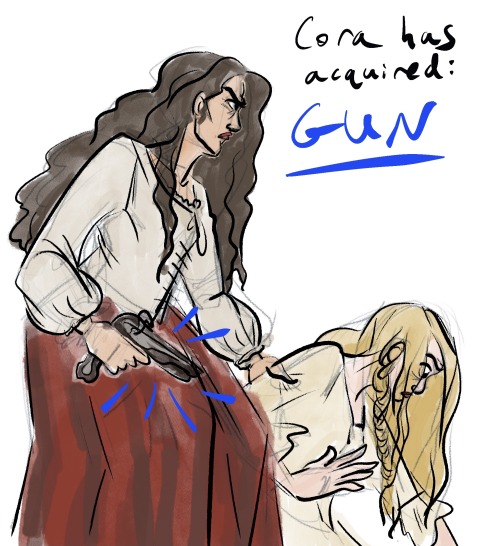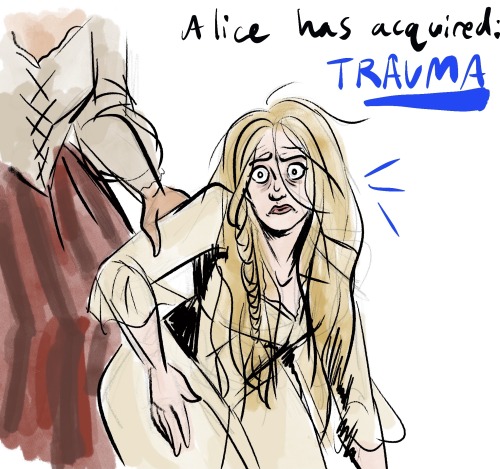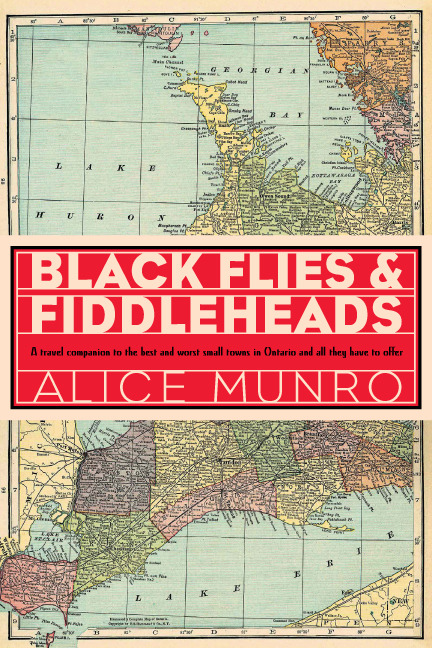#alice munro

An Open Letter to Alice Munro
Dear Alice,
It seems impossible that you don’t know me. What I mean is that I know your work so well—intimate, is the only way I can describe my relationship to your stories—that I feel like I know you. I consider you a kindred spirit and a teacher. I’ve reread your stories so many times that I know I’ve learned more from them than I have in any writing class. I once spent an entire day deconstructing “Friend of My Youth,” diagramming its structure, its story within a story within a story, to try to understand how you pulled it off. When you won the Nobel Prize, I actually cried with joy. And all day, after the Nobel committee made the announcement, friends emailed and called and texted: “You must be so happy that Alice Munro won!” My adoration of you is so well documented that people were congratulating me on your win, as if you were a member of my family.
But I suppose what I’m saying is that you are a member of my family. My literary family. You are my literary mother. You’re the writer I’ve turned to when I needed the solace that only great literature can provide. (When my actual mother was dying, of cancer, it was your stories I read beside her bed. My mother loved your work, too, and near the end, I often read your stories aloud to her.) You’re the writer who taught me how to move around in time in stories—flashing forward and back. You’re the writer who showed me how much can fit into one short story; how a whole life can be compressed and still feel expansive and lived in on the page. You’re the writer who showed me how complex the architecture of a story can be, and how the motif of storytelling can recur again and again and still feel new. How women and their relationships—to their own desires, and with men, with other women, with friends, lovers, and mothers—can be infinitely compelling. How stories set in small town Ontario (and sometimes in Vancouver) can feel universal. You make it look so easy, with your mastery of suspense, your wry humor, your psychological precision, your brilliant endings. And your stories are full of letters, so it seems fitting that I am writing to you. You’ve said that you think of stories as houses, with various rooms. I’ve entered those rooms and come out dazed. I always go back in. Your stories stick with me; they resonate as if they were actual memories. I know that a minister never slid a hand down my underwear on a train, but I’ve lived inside “Wild Swans” so many times that I feel like it happened to me.
Oh, Alice. If we met, I feel certain we would be friends. That sounds silly, I know. Last summer, when Charles McGrath profiled you in the New York Times, the article included a slideshow of your house in Ontario. I studied the picture of your humble writing desk. It was not unlike what I had imagined. And yet, I felt strange looking at it. Part of me didn’t want to know where you work—I just want the stories to speak for themselves; part of me was devastated to know that you’re retiring, that you won’t be sitting in that chair to write any new stories.
You and I were in the same room once. Deborah Triesman interviewed you on stage at the New Yorker festival a few years ago. I was in the audience at the Directors’ Guild on 57th Street, and I even got up the nerve to ask a question during the Q&A. I asked about your titles; I wondered at what stage in your process you come up with them. We made eye contact. You looked at me as you answered my question. To be honest, I don’t remember what you said. I was too excited and nervous in your presence.
I have copies of all your books. Actually, I have multiple copies of most of them. Sometimes, while traveling, I have an urge to reread a particular story of yours and will go and buy the collection that contains it, even though I already have the same book at home. I always travel with at least one of your books because you are the writer I most like to reread. Your stories have kept me company in places all over the world. The collections I’ve returned to most are Friend of My Youth; Open Secrets; The Love of a Good Woman; Hateship, Friendship, Courtship, Loveship, Marriage; andRunaway.
I’m not in the habit of gushing. Friends rely on me for my critical eye, my cool intellect, not for my unbridled enthusiasm. I’m a reluctant user of exclamation points. But for years I’ve wanted to write to you, to say thank you. Thank you! Your stories, Alice, have meant so much to me. Cynthia Ozick once described you as “our Chekhov.” (I love Chekhov—I return to his work again and again, too.) When Ozick said “our,” I suppose she meant our era, our time. But I understand her impulse to use the possessive pronoun. Those of us who love your work do feel possessive of it. Your stories provide deeply private pleasures. You are ourwriter, part of our family. Now that you’ve won the Nobel, even more people have joined our ranks. And I’m glad to know that your work is finding new fans. But I also want you to know that some of us have loved you for a long time. Some of us are writing stories because of you.
Yours sincerely,
Elliott Holt
Elliott Holt’s short fiction and essays have appeared in the New York Times, Virginia Quarterly Review, Kenyon Review online, Bellevue Literary Review, The Millions, and in the 2011 Pushcart Prize anthology. Her first novel, You Are One of Them (Penguin Press, 2013), was aNew York Times Book Review Editors’ Choice, longlisted for the Flaherty-Dunnan First Novel Prize from the Center for Fiction, and a finalist for the National Book Critics Circle’s inaugural John Leonard Award for a first book.
I just rewatched this movie recently, and now I’m rereading the book (which I don’t think I’ve done since high school).
Post link
smother | alice munro (+ uncas)
i want all that is not mine

Jeopardy! is a staple in my family. I would make my way to my grandparents house for a visit - arriving just in time for “The Wheel” (Wheel of Fortune) and Jeopardy! to air. I would sit on the couch across from my grandfather on his recliner chair, TV blaring and help my grandmother complete a puzzle. Sometimes she’d hand me a comb and say, “Laur, give my hair a brush.” I would sit and brush her hair for hours in the front room.
The front room was always impeccably clean - moderate size with a small fireplace and mantle filled with those tasteful small houses that used to come with your package of Red Rose tea. The floor was adorned with an oriental rug while reclining wing-back chairs flanked the bay window where there sat an old “sideboard/hidden-record player.” Sitting at attention on the floor near the fireplace was Nan’s favourite dog, Coco. Coco was a brown miniature-poodle sculpture which was later spray painted gold, when Nan thought Coco needed a makeover. There was display case in one corner which housed Nanny’s collection of Swarovski crystal figurines - her particular favorite, a dolphin. A small symbol of winters spent in Florida.
At Nan’s I could relax. Nothing was expected of me. It was a relief. I could just be me. I’d do the geeky things that I enjoyed like dressing up in Nan’s costume jewelry or reorganizing her bedroom photographs (while occasionally eating chocolates in her fridge). We’d assemble puzzles and she’d say, “I just can’t seem to get this one Laur - I need your help.” I knew she never needed my help but she really wanted me to believe that she did. It was a comfortable silence - in fact, the only one I felt throughout the entirety of my teenage years. She’d tell me how proud of she was when I felt like sometimes my parents and other family members were at odds or tired of me. Often she’d call me Jen, which to me was a good thing, since Jen was one of her favourites.
I never really thought of her mixing up my name with Jen’s as anything - particularly nothing serious. At 92, Nan is the picture of physical health. She takes just a half of a sleeping pill at night. Yet, we’ve lost her and have been told she’s never coming back.
It started about five years ago, when she was still living in her home she had shared with Grampy, still shoveling her driveway - still seemingly normal. One day she called in a panic. She was weak and needed hospitalization. Maybe the signs were clear earlier, but no one was clueing in. She had always been so independent.
My grandmother built planes in World War Two where she met my grandfather - there was a romantic story of talking across streets and courtship in Halifax. She made jokes and told stories that made you laugh until your sides hurt. She’d drive her Volvo around town, take me places and pick me up when my parents weren’t available. She used to walk around the neighbourhood for exercise on her own, hem everyone’s pants, decorate on her own and shop on her own.
Now at dinner, she sits next to me, with her hearing aid buzzing, not quite sure how to adjust it but too proud to ask for help. She interjects awkwardly in conversation and very rarely asks questions about others. She makes up stories about her own children and clings to things she dreams or hallucinates as real. She is known to tell the same story at least four to five times in a row and often forgets words. I used to be able to piece together what she meant and translate for the other members of the family, but now, I can’t. She’s easily frustrated and always seems to have a complaint. In fact, everyone gets frustrated - because it is sometimes easier to be angry than to be sad. The saddest part was to see her most recent puzzle. Pieces were forced into place without patterns connecting - a very non-sensical arrangement. My parents rationalize it by saying, “When you are that old, you have holes in your brain.”
While reading a story by Alice Munro in “Dear Life” a few evenings ago, I finally understood what is happening to my grandmother and so many others afflicted with these illnesses. The story plot follows a woman who seems to be living and then reliving one event in her life that she really thinks is happening. It’s a loss in the time/space chronology of her life and she knows something is amiss yet cannot identify where she is going wrong. She demonstrates emotions of shame, embarrassment and anger - mostly with herself and sometimes expressed at others.
The hardest part of all of this is - all is not lost yet. We see glimmers of Nan in jokes or retorts and once and awhile she asks specifically about others’ health or life plans. She’s even offered me her earrings after I told her I liked them - remembering my love of jewelry. Its enough to make you hope that somehow this trend is reversible - that she will come around.
There is no solution to dementia but there is an ability to find resolve. I am going to continue to treat Nan as if she were the Nan I knew. The Nan that used to make me smile while I helped her decorate her Christmas tree and would make her stuffed elves and animals dance. The Nan that would call me “Laura Babe,” made me boiled dinners and give me popsicles until my mouth turned purple at the cottage. The Nan who always tells me I can be anything and do anything because I am “so smart” and “so good.” I am going treat Nan like that Nan until she completely forgets who I am. Until I become unrecognizable. Until I am just another piece of the puzzle which doesn’t fit and then I’ll say goodbye.

DAY: 81/100
Alice Munro: “BLACK FLIES & FIDDLEHEADS: A travel companion to the best and worst small towns in Ontario and all they have to offer”
Post link






